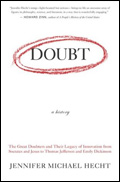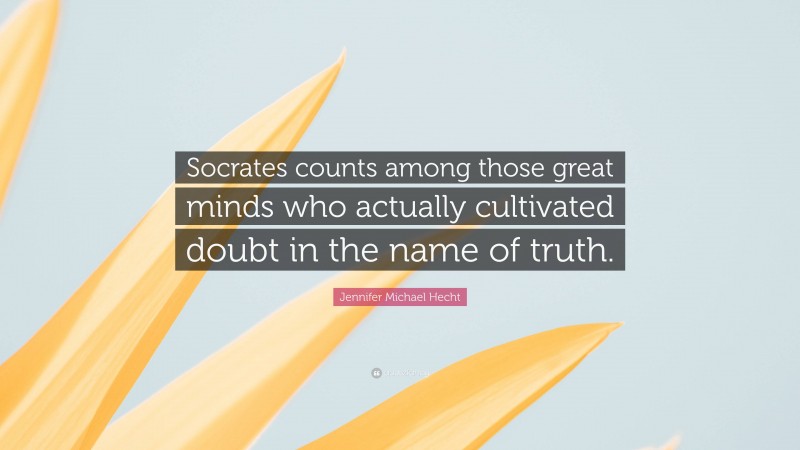

In Zen they have a saying: “Great doubt: great awakening. Buddhist thought has disseminated into a variety of other ideologies, a popular one being Zen, which focuses on self-restraint, meditation, and understanding the nature of the mind. The answer is to let go of all certainty. In fact, it is this belief in the self that Buddhism believes leads to suffering.

Doubt in the existence of the self is central. Buddhism is the search for Enlightenment and the attainment of Nirvana via the transcendence of the self.

In eastern cultures, Buddhism has been around since Guatama Buddha walked the earth somewhere around the 5th century BC. He noted that “Christian youths always grew up to be Christians, Jewish youths to be Jews and Muslim youths to be Muslims.” So what is belief? (For a taste of Jewish doubt, answer me this: How could Moses could have written the book of Dueteronomy when it tells of his own death?) Al-Ghazali (1058-1111) is one of Islam’s greatest philosophers and considered a great religious thinker by many Muslims. Jewish and Islamic doubt have also existed throughout the history of mankind. In the Gospels of both Mark and Matthew, Jesus’ last words were “My God, my God, why have you forsaken me?” Even Jesus doubted. With Christianity, managing one’s doubt, that is, husbanding one’s faith, is the central drama. Who is correct? Is anybody?Īll of the great religions are wracked with doubt in their own ways.

Xenophanes (born 570 BC) was one of the earliest Skeptics, writing that if cattle and horses and lions could paint, “they would depict the gods in their own image.” He noted that Ethiopians described the gods as black and flat-nosed, while the Thracians described them with blue eyes and red hair. People have always questioned the existence of a god or gods and have done so in fantastically myriad ways over the millennia. Questioning something means that you are skeptical of it, or that you doubt some element of it, and this questioning (hopefully) leads to understanding and wisdom.Īlong for the historical ride with philosophical doubt is also religious doubt, the two eternally and conceptually intertwined. He believed that “there is truth to be found, but that human beings may best approach it through doubt rather than conviction.” The ‘socratic method’ is the search for truth via the process of questioning. As long as human beings have questioned their surroundings they have had doubt in their minds. The history of doubt is as long as the history of thought itself, beginning with the birth of philosophy.


 0 kommentar(er)
0 kommentar(er)
